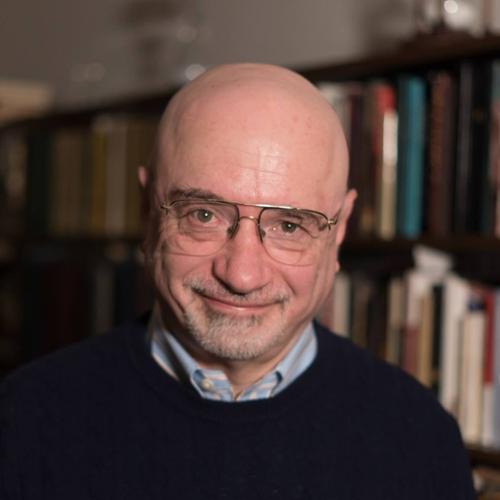Mikhail EpsteinSamuel Candler Dobbs Professor of Cultural Theory and Russian Literature
Biography
Mikhail Epstein is a cultural and literary scholar. He is Samuel Candler Dobbs Professor of Cultural Theory and Russian Literature. Born in Moscow, he moved to the USA and joined Emory's faculty in 1990. In 1990–1991, he was a fellow of the Woodrow Wilson International Center for Scholars and The Kennan Institute for Advanced Russian Studies, Washington, D.C. He has been teaching at Emory University since 1991. From 2012 to 2015, he served as Professor and Founding Director of the Centre for Humanities Innovation at Durham University (UK).
His research interests include cultural and literary theory, the history of Russian literature and philosophy (particularly Pushkin, Gogol, Dostoevsky and 19-20th cc. poetry), Western and Russian postmodernism, contemporary intellectual trends, semiotics and linguistics, and new methods and interdisciplinary approaches in the humanities. He is especially interested in the practical extensions and applications of the humanities and their creative contributions into the areas of their study.
He is the author of 42 books published in English and Russian, and more than 800 articles and essays. His works have been translated into 26 languages. His books include Ideas Against Ideocracy: Non-Marxist Thought of the Late Soviet Period (1953–1991) (2022); The Phoenix of Philosophy: Russian Thought of the Late Soviet Period, 1953-1991 (2019); A Philosophy of the Possible: Modalities in Thought and Culture (2019); The Irony of the Ideal: Paradoxes of Russian Literature (2017); Russian Postmodernism: New Perspectives on Post-Soviet Culture (with A. Genis and S. Vladiv-Glover), 2016; The Transformative Humanities: A Manifesto (2012); Transcultural Experiments: Russian and American Models of Creative Communication (with E. Berry, 1999); After the Future: The Paradoxes of Postmodernism and Contemporary Russian Culture (1995); Primary Concepts: Keys to the Cultural Code (in Russian) 2022; From Knowledge to Creativity: How the Humanities Can Change the World (in Russian), 2016, Poetry and Superpoetry: On the Variety of Creative Worlds (in Russian), 2016; Religion after Atheism: New Possibilities for Theology (in Russian, 2013); Mapping Blank Spaces: On the Future of the Humanities (in Russian, 2004).
In 1992-1994 Mikhail Epstein received a grant from the National Council for Soviet and East European Research to work on the history of Russian thought of the late Soviet period. He has authored. inteLnet (from 1995), Kniga Knig (Books of books, 1998), co–founder and co–editor of the online site Filosofia. An Encyclopedia of Russian Thought (from 2017) and a number of other interdisciplinary projects and web sites in the humanities.
Mikhail Epstein has won national and international prizes, including the Andrei Bely prize (St. Petersburg, 1991); The Social Innovations Award 1995 from the Institute for Social Inventions (London) for his electronic Bank of New Ideas; the International Essay Contest set up by Lettre International and Weimar - Cultural City of Europe 1999; and the Liberty Prize, awarded for his outstanding contribution in the development of Russian-American cultural connections (New York, 2000). His most complete bio– and bibliography is in Homo Scriptor: A Collection of Articles and Materials in Honor of Mikhail Epstein's 70th Anniversary (in Russian, Moscow: 2020, 688 pp.). The first session of the Inaugural Conference of the Northwestern University Research Initiative for the Study of Russian Philosophy and Religious Thought was devoted to him: "Celebrating Mikhail Epstein: Contemporary Religious and Metaphysical Thought" (April 21–23, 2023).
